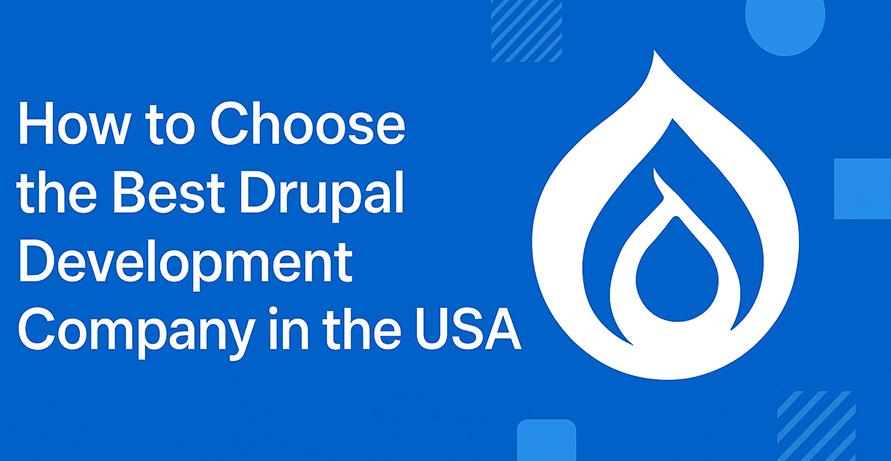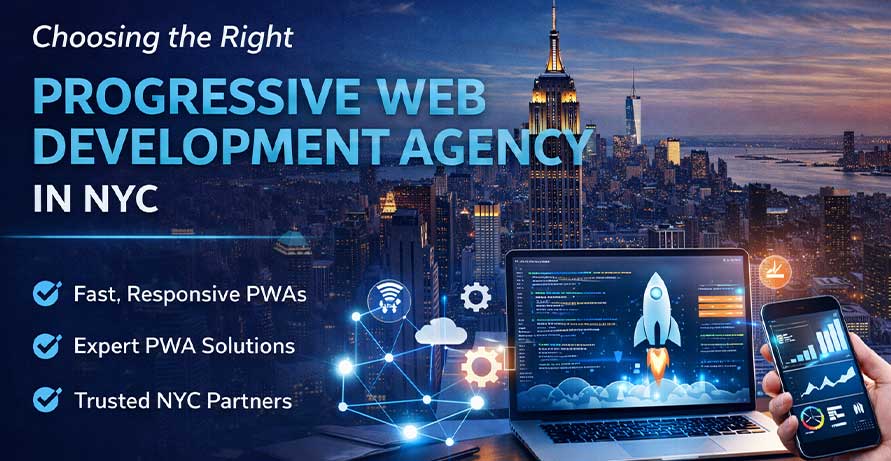How to Choose the Best Drupal Development Company in the USA

Choosing the right Drupal development company in the USA can shape your entire digital strategy. Drupal is powerful. It supports enterprise websites, government portals, universities, and healthcare platforms. But it is also complex. Without the right partner, your platform can become slow, insecure, or difficult to scale.
This guide explains:
- Why choosing the right Drupal partner matters
- What criteria to evaluate
- Common mistakes to avoid
- How Anchor Points delivers enterprise Drupal solutions
Why Selecting the Right Drupal Partner Matters
Drupal powers high-security and high-traffic websites worldwide. In the U.S., it is widely used in:
- Healthcare
- Government
- Higher education
- Media
- Enterprise platforms
Drupal offers:
- Advanced security
- Multilingual capabilities
- Role-based permissions
- API-first architecture
- Enterprise scalability
However, poor implementation can cause:
- Downtime
- Security vulnerabilities
- Accessibility violations
- Performance issues
- Expensive rework
Choosing a Drupal agency is not just a cost decision. It is a long-term strategic partnership.
Key Criteria for Choosing a Drupal Development Company
1️⃣ Technical Expertise and Certifications
Drupal requires deep technical skills.
Look for:
- Acquia-certified developers
- Experience with Drupal 10 and upgrade planning
- Headless (decoupled) Drupal expertise
- API integrations
- Performance optimization skills
Certified developers typically deliver:
- Fewer configuration errors
- Cleaner architecture
- Smoother deployments
- Lower long-term maintenance costs
Ask for case studies involving complex builds, not just brochure sites.
2️⃣ Industry-Specific Experience
Drupal projects differ by industry.
A healthcare portal is not the same as:
- A university website
- A government portal
- An e-commerce platform
Industry experience helps agencies:
- Anticipate compliance requirements
- Design proper workflows
- Reduce trial and error
- Accelerate delivery
For example:
- Healthcare requires HIPAA-aligned hosting
- Government sites require ADA and WCAG compliance
- Universities need multi-site governance
Working with an agency that understands your industry reduces risk.
3️⃣ Security and Compliance Focus
Drupal is secure by design. But misconfiguration creates risk.
Your Drupal partner should provide:
- Regular security patching
- Module auditing
- Role-based access controls
- Vulnerability testing
- Secure hosting guidance
In the U.S., compliance may include:
- ADA (Accessibility)
- HIPAA (Healthcare)
- GDPR & CCPA (Privacy)
Security is not optional. It protects your reputation and avoids legal penalties.
4️⃣ Long-Term Support and Scalability
Drupal requires ongoing updates.
A reliable Drupal partner should offer:
- 24/7 monitoring
- Performance optimization
- Version upgrades
- Migration planning
- DevOps and cloud support
Without long-term support, your site can:
- Slow down
- Break during traffic spikes
- Become outdated
- Develop security gaps
Post-launch support is just as important as development.
5️⃣ Agile Process and Transparent Communication
Successful Drupal projects depend on collaboration.
Look for agencies that offer:
- Agile sprint-based development
- Clear milestones
- Dedicated project managers
- Real-time reporting dashboards
- Transparent pricing
Agile delivery reduces surprises and improves alignment.
Red Flags to Watch Out For
Avoid Drupal agencies that:
- Focus only on price
- Lack enterprise case studies
- Cannot explain their architecture decisions
- Offer no post-launch support
- Avoid discussing compliance
- Have no certified developers
Cheap development often leads to expensive fixes later.
Questions to Ask Before Hiring a Drupal Company
Use this checklist:
- Are your developers Drupal-certified?
- Do you support Drupal upgrades and migrations?
- How do you handle security advisories?
- Can you provide industry-specific case studies?
- What does your post-launch support include?
- Do you offer headless Drupal solutions?
Clear answers indicate real expertise.
Why Enterprises Choose Anchor Points
Anchor Points provides enterprise Drupal development services in the USA.
We specialize in:
- Custom Drupal development
- Headless and decoupled architecture
- Enterprise integrations (CRM, ERP, analytics)
- ADA and HIPAA compliance
- Multi-site and governance frameworks
- Performance optimization
- Cloud-native hosting
- Continuous monitoring and upgrades
Our approach focuses on:
- Scalable architecture
- Secure implementation
- Agile collaboration
- Long-term digital growth
We build Drupal platforms designed for performance, compliance, and future scalability.
Final Takeaways
When choosing a Drupal development company in the USA, prioritize:
- Proven technical expertise
- Industry experience
- Security and compliance knowledge
- Ongoing support
- Transparent communication
Drupal is powerful. But only when built correctly.
The right partner ensures your platform remains:
- Secure
- Scalable
- Compliant
- High-performing
- Future-ready
FAQs
Q1. How much does Drupal development cost in the USA?
Small projects may start around $20,000. Enterprise builds can exceed $300,000 depending on complexity and integrations.
Q2. Why choose Drupal over WordPress?
Drupal offers stronger enterprise security, scalability, multilingual support, and headless architecture capabilities.
Q3. How can I verify Drupal certification?
Ask for Acquia certification proof or verify credentials through official Drupal community listings.
Q4. Is Drupal suitable for e-commerce?
Yes. Drupal Commerce supports advanced product catalogs, integrations, and complex workflows.
Q5. How long does a Drupal project take?
Small projects may take 8–12 weeks. Enterprise implementations can take 6–12 months depending on requirements.








